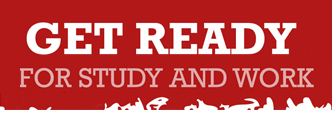Information for educators
There are so many things for young people to think about when getting ready for life after school – What do I want to do? Work? Study at Uni? Study at TAFE? Maybe an Apprenticeship or Traineeship?
The questions go on - Where do I find out about what's involved? Who can help me? What support might I need? Where can I get it? And importantly, how will all of this fit with the rest of my life?
Young people make many transitions as they move into adulthood – these might include starting a new job or a new course, moving house or getting married. A lot of transition planning takes place when students are still at school, particularly with regard to planning for further study or work. Making transitions is exciting for young people, but can also be challenging. People who plan their transitions well, with help where needed, are likely to have a better outcome than those who don't. There are lots of decisions and preparations that all young people have to make when planning for transition. There are also some extra things that young people with a disability should consider, and some additional support that can help them to plan well for life after school. There are also lots of things that you can do to help your students prepare.
We have developed a series of Get Ready Workbooks which are a great resource for your students and parents. The series includes:
- Get Ready for study and work: Top tips for young people with disability
- Get Ready for study and work: Tips for young Aboriginal and Torres Strait Islander people with disability
- Get Ready for study and work: A guide for parents and carers
The workbooks work through practical activities linked to our evidence based tip ten tips for a successful transition. They also provide comprehensive information about post-school options and support, and links to further information. You are welcome to download these workbooks to promote to your students or for use in your school or classroom. We would love your feedback on how you have used them – contact us.
You can also contact your local NDCO at any time for further information on post-school education, training and employment options for students with disability, to request a presentation to your students, families and/or staff, or to find out about local activities such as post-school options expos.


